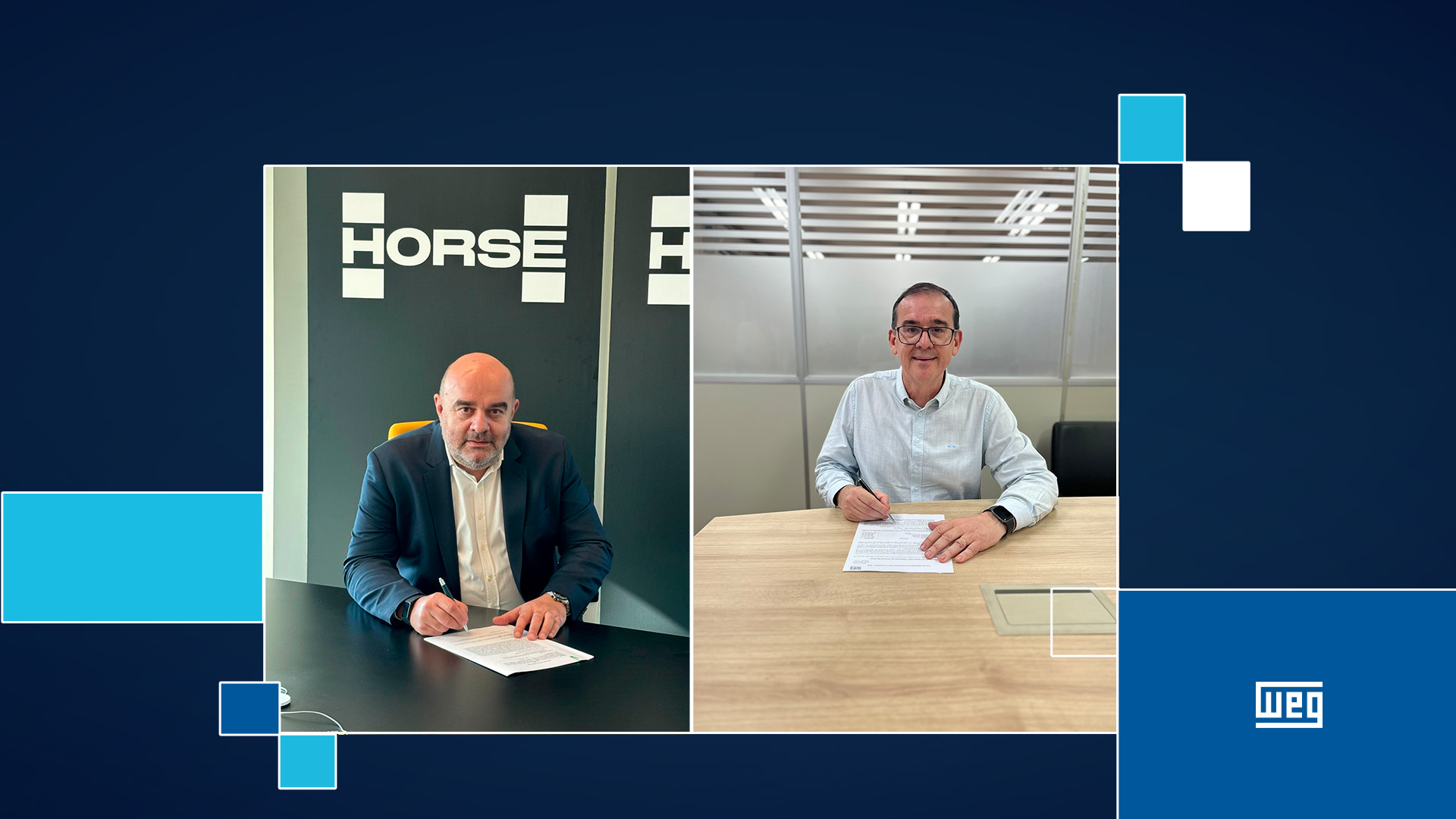Jaguar Land Rover (JLR) inaugurated the first electric vehicle charging station with the concept of clean energy, reusing I-PACE batteries that would have been discarded and giving this material a second sustainable life. The project, created through the JLR's Open Innovation program, in partnership with WEG, Energy Source, and EZVolt, involves the capture of solar energy using photovoltaic panels already installed at Land Rio dealership, the first Carbon Zero concept dealership by JLR. This energy is then stored in a bank of lithium-ion batteries taken from the I-PACE electric vehicles, which were no longer suitable for use in the vehicle but still offer great potential for charge storage.
Inside the charging station, the energy stored in various lithium battery modules is converted and supplied to the system. This energy powers a semi-fast charger for electric vehicles from the WEMOB (WEG Electric Mobility) Parking line of 22kW, a partner in this major sustainability and innovation initiative. The WEMOB Parking model allows connectivity to the internet and management platforms. It also enables outdoor use with protection against UV rays, water ingress, and pollution.
With the energy powering the charger, the brand integrated the charger with its system, enabling user authentication via an app, load management, and a means of billing for the energy used. With this, JLR began to offer a complete solution based on clean energy, using second-life batteries and solar energy in a controlled and sustainable manner.
João Oliveira, President of JLR Latin America and the Caribbean, said, "We are very pleased to present a completely new and sustainable concept, continuing our strategy guided by the pillars of sustainability and innovation that govern JLR. The batteries from the I-PACE that would have been discarded will now provide energy for charging electric vehicles. This shows us that with intelligence and teamwork, it is possible to create sustainable strategies and alternatives for the sake of our planet."
Francisco Ferraz Magalhães, Director of Land Rio, said, "Being the first dealership in Brazil to present this sustainability initiative is a matter of great pride for us. In addition, through various initiatives such as the use of solar panels as the main source of energy and the storage of rainwater, which is later reused, we became the first Jaguar Land Rover dealership in the world to neutralize 100% of our carbon emissions, completing scopes 1 and 2 in the GHG (Greenhouse Gas) protocol."
Carlos José Bastos Grillo, Managing Director of WEG Digital & Systems, said, "Collaborating with the JLR's Open Innovation Program, participating in this project that demonstrates the synergistic potential of innovative and sustainable solutions, integrating solar energy, charging stations, and energy storage in lithium batteries from electric vehicles, is part of WEG's strategy to accelerate the development of technologies that contribute to the reduction of greenhouse gas emissions."
About JLR:
The Reimagine strategy of JLR is providing a rich vision of sustainability for modern luxury through design. The company is being transformed to achieve net-zero carbon emissions across the supply chain, products, and operations by 2039. A roadmap has been established to reduce emissions in all operations and value chains by 2030 based on approved scientific targets. Electrification is key to this strategy, and by the end of the decade, the Range Rover, Discovery, and Defender collections will each have a pure electric model, while Jaguar will be fully electric.
At its core, JLR is a British company, with two design and engineering units, three vehicle plants, an engine manufacturing center, and a battery assembly center in the UK. It also has vehicle plants in China, Brazil, India, Austria, and Slovakia, as well as seven technology centers worldwide. JLR is a wholly-owned subsidiary of Tata Motors Limited, part of Tata Sons.



